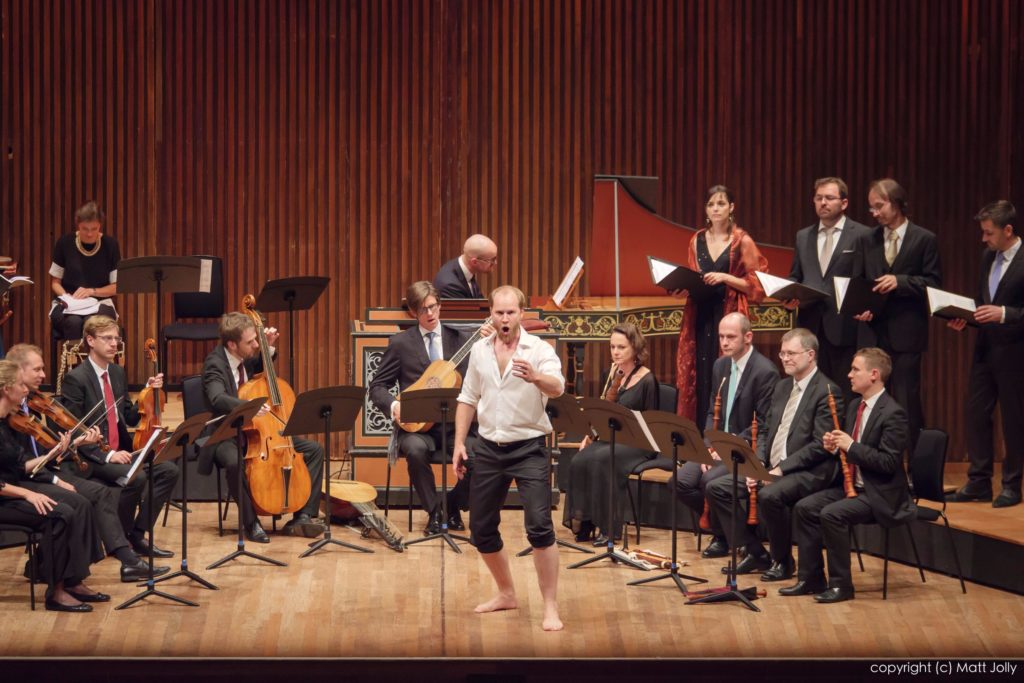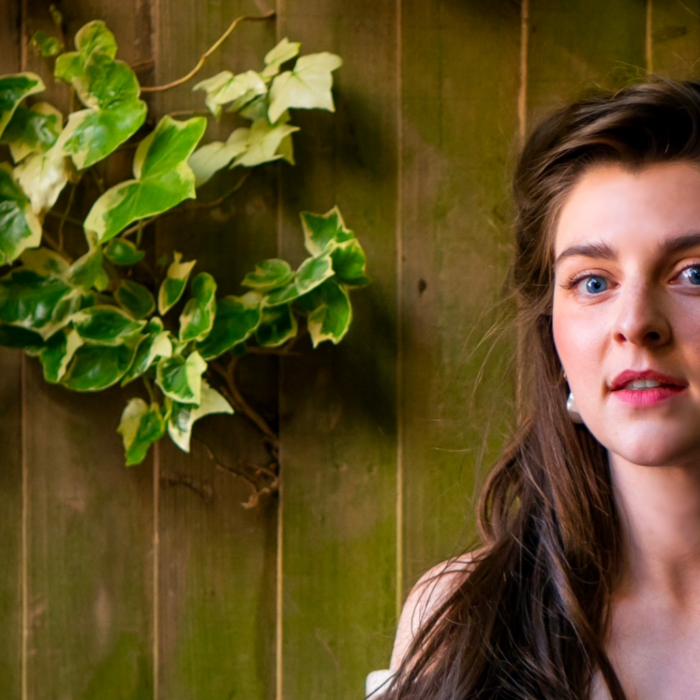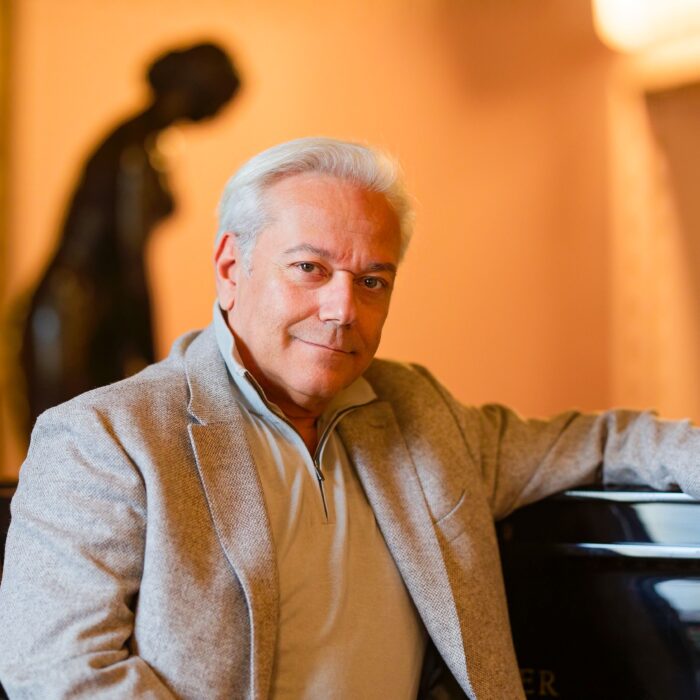
Q & A: Baritone Tomaš Kral on Why Baroque Music is His Greatest Passion
By Ona Jarmalavičiūtė(Credit: Barbara Dietl)
Czech-born vocalist Tomaš Kral has a virtuosic baritone with a warm timbre which he uses to remind the modern-day audiences of the charm of early music, its purity of spirit, and the peace it brings.
Audiences have had the opportunity to experience these aspects of Kral’s artistry through his performances with such as Collegium 1704, Collegium Marianum, and Musica Florea, as well as at prestigious concerts for the Prague Spring, Dresdner Festspiele, and Festival de La Chaise-Dieu.
OperaWire recently had an opportunity to talk to the baritone about the Czech Republic’s music scene, his love for early music, and the interpretative nuances of baroque music.
OperaWire: How did you become involved with early music?
Tomaš Kral: I started studying opera singing. There is, in fact, only one study program for opera singers, and so I was part of this program.
One day I heard one of my colleague singing in the university hall. He was a tenor, and he was also playing the harpsichord, which was very unusual at the time. This was Vaclav Luks. He was giving a masterclass. That was in 2004. Afterwards, we spoke and I sang, and he invited me to Prague in 2005. Then everything just snowballed. I was still studying in Brno at the time, but all the developments and projects were happening in Prague, so immediately after I finished my studies in 2008 I moved to Prague, where I lived for the next seven years. Now I have moved to Berlin.
Since that meeting with Vaclav Luks, I have performed mostly music from the baroque repertoire. Very rarely, maybe once a year, I perform in an opera, and sometimes I sing contemporary music, which I really enjoy doing. I like the challenge that contemporary music creates for the performer. Although I must stress I still prefer the baroque. Also, there are a lot of parallels between the performance of early and contemporary music, because in baroque repertoire the voice has to be very specific, carefully structured and with refined ornamentations.
Also, when singing in a baroque ensemble, you have to open your ears and be a part of the group dynamic. These are the same tools needed for performing contemporary music as well. The parallels between early music singing and contemporary music singing is very close.
OW: What do you think is the current situation of the performance of Baroque music?
TK: Baroque is becoming really popular, and there is now a large and diverse audience interested in listening to it. It now performed even in the big festivals, like Salzburger Festspiele. It is definitely becoming more mainstream. The situation in Prague is the same: it the new trend, it has become fashionable to go to concerts of baroque music.
I am from the Brno region of the Czech Republic. I have been performing baroque music for fourteen years, and I remember that at the beginning it was not very popular here; we still had to fight to be heard. We were in the vanguard in promoting baroque vocal music. I remember feeling that I was like a creator of something that in the future will become trendy. I don’t feel like I just joined the club because it’s popular, I feel part of the baroque music revival. However, sometimes it feels less profound, because in the past baroque musicians really had to fight to be heard. Now it is a bit trendy, and so the quality of the music can be overshadowed by the fashion.
OW: How do you see the Czech music scene and the role played by baroque vocal music there?
TK: We can start with education. In the Czech Republic we have two universities with classical singing programs: one in Prague and one in my hometown, Brno. In both these universities the teachers come from an older tradition, which for them means music starts with Mozart. For opera singers, they focus mainly on the romantic repertoire.
Early music is only considered useful for singers who have no voice. You are bad at singing, okay, perform the baroque repertoire or sing in the choir. This was their approach and to an extent, it is still present. We are still not as advanced as, for example, Holland, in early music performance. However, it is changing, but slowly.
For the past four or five years, we have had a department for early music: vocal, instrumental, chamber music. It is also slowly starting to be taught in the school system. So we are getting there!
OW: How do you create your interpretation of an early music piece?
TK: It depends on the context of the piece. As a soloist you start with the text, then you visualize and try to understand why and what you are saying, and why the melody is the way it is. You try to understand how the composer has handled the combining of the text with that specific music; there is a dialog between the text and the music, and this is what I must attempt to uncover.
That’s why I like contemporary music; the composer is still alive and you can communicate directly with them in order to gain a better understanding of the piece. You can ask him questions and he can answer you, together you can find a compromise. Obviously, it is not always possible to meet the composer, but in every case, I approach the music like the creator is still alive. I ask myself, if I were him, why would I write it like that and what do I expect from the person who is going to sing it. These are my basic principles for creating an interpretation.
OW: Is there anything special about the baritone repertoire in the baroque?
TK: We know the names of the some of singers for whom early composers wrote their music. For example, Handel wrote music for a famous bass-baritone and in the score, you can see his vocal range and hear his character, and imagine how his performance may have sounded. There are some compositions that I feel have been written exactly for my voice. These moments are special, and I feel at home with the music.
Sometimes I know that I shouldn’t sing a piece, because it is too low or too high, or just doesn’t suit my voice, so when I feel at home, it is beautiful feeling, it is as if my voice is communicating with the ideas of the composer.

Credit: Matt Jolly
OW: Talking about your education, what values did you receive from your studies that have shaped your professional career?
TK: In my case, I don’t know the extent to which I have kept to the same set of values throughout my life. But my professional approach to music has been built on years of experience working with voice teachers, coaches, conductors, colleagues, composers of contemporary music, and so on.
I don’t have a guru that I follow blindly. I prefer to have an open pallet, and just pick out what suits me at the time. Last week my wife and I were teaching 11 students for a class on baroque music. This was the first time when we were teaching properly. We didn’t know what to expect, but it was great. It was learning experience for us too, we learned so much about ourselves, about our teaching, our technique, our routines, and musical values.
OW: Do you think about the impact you would like to have on your listener?
TK: As vocalists, we are the luckiest musicians, because we have a text and the message is clearer than for other musicians. Instrumentalists are always jealous of that. The composer is able to deliver the idea through the words. There are also baroque forms, principles and musical rhetoric which have quite clear meanings. It is connected to the harmony as well: there are questions, answers and conclusions.
In general, however, I try to deliver the feelings that lie behind the words, and to make it very personal. Mostly I sing church music, but I still have to make it personal, even when the texts is saying “Kyrie Eleison” over and over again. There has to be a personal reason why I am singing it. I have to view it from a personal perspective, so other people can see the picture, or at least imagine their own picture, albeit one based on our same shared human experience and the emotions it contains.
OW: Do you have the same approach when creating a character in an opera?
TK: Usually a character is formed through the libretto, its historical context and and other performances of the work. The director will also have his own concept, which on occasions can completely ruin the libretto. He or she uses the libretto; they take the character and add their own intentions to it.
I find that opera staging is more routine than performing early music. You rehearse longer for an opera, usually, it takes up to five weeks to really find the character and to define and fashion it in a way you are happy with. It becomes your costume, which remains the same for every performance. You put on your costume, you go onto the stage and you stay within that character. Of course, there is still a place for small changes between performances, but you have to remain within the character which you have agreed upon with your creative team. I like to be more spontaneous that’s why I prefer singing in concerts.


